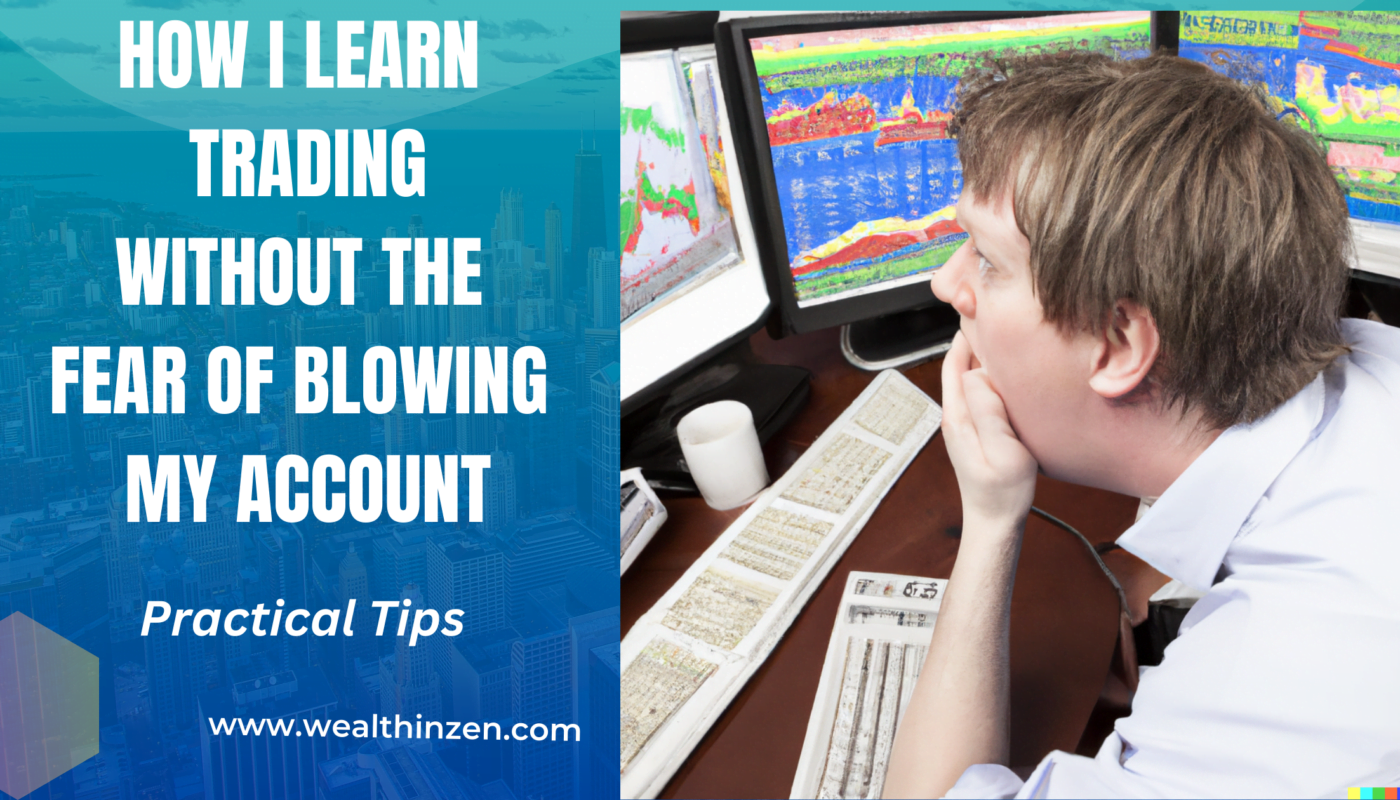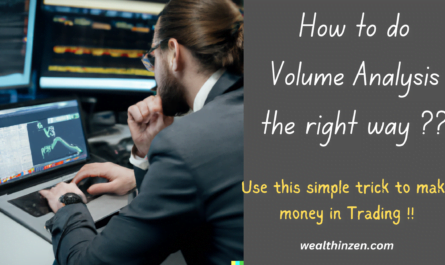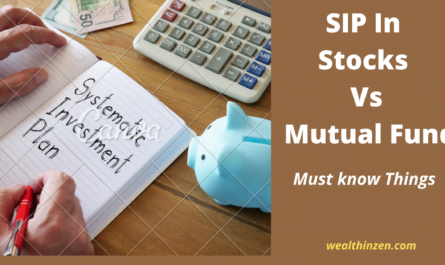Trading is usually considered to be a very risky adventure. It is common to hear the age old cliché “95% of traders lose money in trading”. The statement is true. 95% lose money or even worse many blow their entire account.
When I started trading this statement actually created lots of doubts and confusion within me. I was thinking whether I should trade or not? What if I lose all my money? Also, in the process of learning to trade, what if I lose precious time? Because there is another famous line “ Time in the market is more important than timing the market”.
I was thinking if I lose six to seven years in learning to trade and then find out that I can’t trade for some reason, if I can’t find an edge within that time period, wouldn’t I have lost some precious time? What if a passive investor, say my friend for example, beats me by leaps and bounds by simply investing in passive mutual funds, while I would be struggling to even beat the Index or worse -I can’t even beat FD or even worse with zero or negative returns losing hard earned capital?
I thought that the probability is always there. I can end up with profit or can lose it all. More than the money part I was worried about the time I might lose in the learning process. Can I risk my family for my passion? I can’t. Any rational person won’t. But what if I said that one can learn trading without jeopardizing the family goals, your retirement goals, kid’s education goals and try your luck in trading?
This is what I am going to talk about in this article. I am just sharing what I am doing right now and if it makes sense to you, you can follow that.
Think of failures:
If you are aware of what can go wrong you can be well prepared when bad things happen. You take life insurance not because you want to die, but because if something happens to you, your family can benefit from that. Similarly, you take some precautions and manage risk in trading, not because you want to fail but to make sure that your failure does not affect your family.
This way of foreseeing failure, made me think in a rational manner. Please, note that foreseeing failure is not a negative thinking, it is a way to prepare yourself when something happens unexpectedly. So, I made an affirmation that I will put only the money in the trading account which I can lose. Even if I lose this money entirely, nothing is gonna happen to me. I will think that I spent some money on luxury items, like a vacation to Europe, luxury mobiles etc., That’s it. Nothing more to brag about and feel depressed.
Also note that this amount may vary from person to person. So it’s you who has to decide how much you can afford to lose.
Asset Allocation:
Having said that, it may still be difficult to decide which amount is good to lose. So, I follow a practical solution to this.
Just like you allocate your money for assets like equity, debt, gold, Real estate, allocate a small amount to trading also. To start with, restrict this allocation to be just 5-10% of your equity allocation. Suppose you allocate 60% for equity of that 5-10% you can allocate to your trading account.
As you gain confidence and learn how trading is, you can start increasing the allocation. You can even do an SIP in your trading account and scale up gradually. Having a proper account size is very important for trading success. If you want to know how to decide your account size you can use my free account size calculator here.
Avoid Risky trading assets:
By risky, I mean using leverages. Leverage can be a boon to experienced traders to have an edge in trading. However, when you are beginning it is actually detrimental. Most traders quit, since they blow their account. Futures and Options can be very costly and even a single wrong trade can wipe off your account.
I made a conscious decision of not trading in Futures/ Options when I started trading and I will stick to it until I become super profitable in equity trading. It has helped me to stay in this trading game. More you stick to this game, the more you learn daily. You may not understand it in a year or two, but if you stick to it you will learn to put together all the puzzles.
Unfortunately, social media is filled with Option buying and selling and new traders are being lured into it too often. Stay away from these quick rich games. Even futures are ok, but Options have too many variables in them. Time decay, open interest, weekly expiry and much more has made this game very complex and unless you are following some rule based ALGO like trading you are most likely to fail.
Equities are the best to start with:
If there is one thing that a new trader should look into when he starts trading it is Direct Equity (Buying stocks). Trading in direct equity has a lot of benefits in itself.
You can start with as little cash as possible. Even with 10,000 you can start trading. You can position size to as low as just buying only one stock, but in Futures and Options you should buy in lots. Position sizing is the heart of trading and you can do it easily without much complexity in equities. I had written an article on various position sizing strategies. Do read it if you are really serious about trading.
Also you need not worry about time decay, expiry, roll over etc., You can actually make time as your friend in direct equity. Longer time frame trading has a greater advantage over shorter time frame trading.
Another most important thing is unlike Futures and Options, how many mistakes you make, your account will never go to zero in direct equity. Because you have the stocks in your account. It may decrease in value and may even become insignificant. However, it won’t go to zero.
Pay less tuition fees:
The losses we make in trading should be considered as a Tuition fee we pay to the market for teaching a lesson. We should take note of our mistakes in each trade and correct them. Make a perfect trading journal and track the errors religiously.
Having said that, the tuition fees you pay can be anything depending on the risk you take. You need not risk a lot and pay a hefty tuition fee (Loss). You can take a smaller risk and learn the game in an economical way. Once you become used to it you can always scale up. Market is there anytime, it doesn’t go anywhere. Risk reward is everything in trading. Learn it.
Understand where to spend and where to be a miser:
Another way most traders spend is attending all trading classes and thinking that they can become a master. It does not work that way. Of course some trading classes are very good and useful. I also had gained a lot of lessons and reduced my learning curve by attending them. But, believe me most courses are not worth the money. Most courses are available for free on YouTube. One way or another it is available.
You should develop a knack of understanding which is a good one and which you can get for free. Someone is teaching that 15000 worth course for free on YouTube way better than that course moderator. Find that person. Sometimes, you may not get all the answers in the same video, but keep reading and you will get it in someone else’s video. Put them all together.
Invest your money in books written by proven traders like Stan Weinstein, Mark Minervini, William O’Neil and others. I had written an article on how to select stocks based on Mark Minervini’s teachings here. Read it if it interests you.
Also, don’t invest heavily on technology based stock research sites. One or two is ok. But, I have seen some people who do paid subscriptions to five to six platforms every month.
Final words:
Hope, this article has shed some light on how one can learn trading without blowing their account by taking calculated risks.
However, you should also understand that since you are risking only an amount you are not bothered about, it may keep you in your comfort zone. A typical example of it is a person paying a full year gym fees in one shot and going to gym only for a week. Once the amount is paid the sincerity is lost.
It can happen here also. So, keep your desires burning. This is just a step you are taking now to leap far far higher in future. You should get a little uncomfortable in your later stages of trading journey, and you will be making some tough decisions. Never forget that.
If you like my writings consider subscribing to my newsletters and get my insights delivered right into your inbox.
Happy trading !!!



